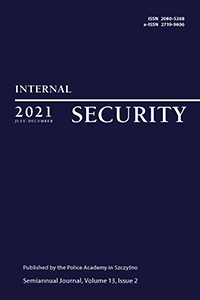Attitude of Individuals First Entering Labour Market to the Implementation of Equality of Treatment Principle
in Labour Relations
Attitude of Individuals First Entering Labour Market to the Implementation of Equality of Treatment Principle
in Labour Relations
Author(s): Eglė Štareikė, Ugnė AlaburdaitėSubject(s): Economy, Human Resources in Economy, Socio-Economic Research
Published by: Akademia Policji w Szczytnie
Keywords: gender equality; labour relations; statutory service
Summary/Abstract: By invoking scientific doctrine, legal regulations and official statistics, the paper aims at assessing the actual positionof females and males in labour relations in Lithuania as well as identifying the problems of the legal regulation of gender equality.The survey conducted among MRU Public Security Academy students was dedicated to disclosing the perceptions of individuals firstentering the labour market about (in)equality in labour relations and experiences in the course of professional practice. To attainthese objectives, certain goals were set: analysis of multiple layers of the concept of equality, legal regulation of the principleof gender equality and its inclusion in labour relations and statutory service. Furthermore, the present paper considered varioustrends and patterns in the implementation of the gender equality principle in labour relations, based on the analysis of the dataof the Office of the Equal Opportunities Ombudsperson. Empirical research was carried out to assess the experience of studentswho had their professional practice in police headquarters in terms of gender inequality. Based on the performed survey thatinvolved the students of MRU Public Security Academy, it should be concluded that the majority of students did not understandthe different behaviours that could violate an individual’s rights in terms of the equality of men and women. When respondingto certain questions, the majority of respondents indicated that gender inequality in Lithuania existed only to the extent it occurrednaturally; however, when responding to other questions, the majority stated that there were numerous situations during theirpractice when they experienced discrimination (i.e. preferential treatment of one of the genders, abuse due to gender etc.). Thiscan lead to the conclusion that violations of gender equality committed on certain grounds are perceived as a natural phenomenonresulting from natural differences between the sexes and because of this, certain flawed behaviour is justified. This results in feweropportunities for individuals to report violations to responsible institutions and thus ensure the protection of their rights as wellas to share their experiences with other individuals and, as a result, educate them
Journal: Internal Security
- Issue Year: 13/2021
- Issue No: 2
- Page Range: 21-38
- Page Count: 18
- Language: English

